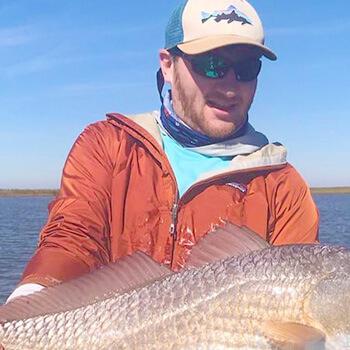3 College Street
Rubenstein Ecosystem Science Laboratory
Burlington, VT 05405
United States
- PhD, Ecology and Evolutionary Biology, University of Louisiana at Lafayette
- MS, Marine Biology, Northeastern University
- BS, Neuroscience; BA, Biology, Brandeis University
BIO
Justin is a Postdoctoral Associate in the Jason Stockwell and Ellen Marsden Labs at the Rubenstein Ecosystem Science Laboratory. He is developing a model of the Lake Champlain food web to better understand the ecological ramifications of many factors on the lake’s ecosystem. This model will help us understand the impact of past events, such as the invasions of species like alewife and reestablishment of wild lake trout populations, in order to better understand and predict how the food webs of the lake will respond in the future.
Justin competed his PhD at the University of Louisiana at Lafayette in the summer of 2021. For his PhD work, he used stable isotope analysis and field studies to understand how landscape features influence the ability of mobile consumers to move energy between disparate habitats and support consumer populations. Additionally, he has developed novel analysis techniques to use isotope data to quantify multidimensional trophic niches, as well as understand how a landscape is producing the resources required to support food webs. Much of this work was done through the Plum Island Ecosystems LTER Site in Newbury, Massachusetts. Justin has worked in a variety of systems including coral reefs, seagrasses, and saltmarshes.
Publications
Area(s) of expertise
Food webs, ecological modelling, stable isotope ecology, energy flow
Bio
Justin is a Postdoctoral Associate in the Jason Stockwell and Ellen Marsden Labs at the Rubenstein Ecosystem Science Laboratory. He is developing a model of the Lake Champlain food web to better understand the ecological ramifications of many factors on the lake’s ecosystem. This model will help us understand the impact of past events, such as the invasions of species like alewife and reestablishment of wild lake trout populations, in order to better understand and predict how the food webs of the lake will respond in the future.
Justin competed his PhD at the University of Louisiana at Lafayette in the summer of 2021. For his PhD work, he used stable isotope analysis and field studies to understand how landscape features influence the ability of mobile consumers to move energy between disparate habitats and support consumer populations. Additionally, he has developed novel analysis techniques to use isotope data to quantify multidimensional trophic niches, as well as understand how a landscape is producing the resources required to support food webs. Much of this work was done through the Plum Island Ecosystems LTER Site in Newbury, Massachusetts. Justin has worked in a variety of systems including coral reefs, seagrasses, and saltmarshes.
Publications
Areas of Expertise
Food webs, ecological modelling, stable isotope ecology, energy flow
